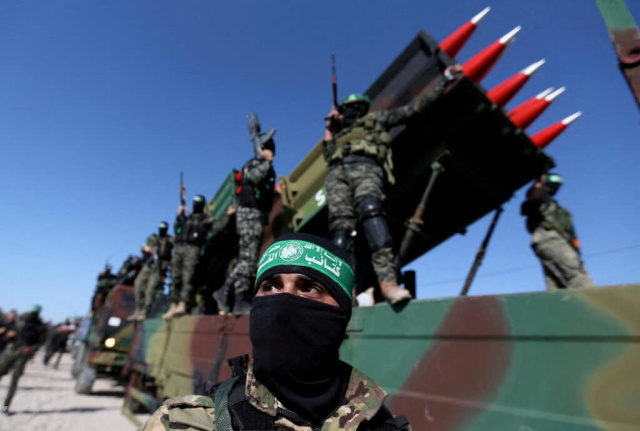In a surprising turn of events, the head of Hamas, Ismail Haniyeh, has hinted at the possibility of a truce agreement with Israel, according to a report.
The statement comes as fighting continues in the northern parts of the Gaza Strip, while diplomatic efforts are underway to negotiate the release of 240 hostages abducted by the Palestinian armed group.
Haniyeh’s announcement provided no specific details on the terms of the potential agreement. However, US President Joe Biden expressed optimism about an imminent deal to free the hostages in Gaza.
Mediators from Qatar are actively involved in negotiating an arrangement between Israel and Hamas.
The proposed deal involves exchanging 50 hostages for a three-day ceasefire, aiming to facilitate the delivery of emergency aid to civilians in Gaza.
Hamas representative Izzat Al-Risheq elaborated on the potential agreement, stating that it would include a several-day truce, the provision of humanitarian aid, and the exchange of hostages for Palestinian prisoners held in Israeli prisons.
The United States swiftly condemned the hijacking of a cargo ship by Yemeni Houthi rebels. The ship, named Galaxy Leader, had two Bulgarians among its crew.
US State Department spokesman Matthew Miller, in a press briefing, described the Houthi action as a “gross violation of international law” and called for the “immediate release of the ship and its crew.”
The United Nations also expressed alarm over the incident, with Secretary-General Antonio Guterres’ spokesman noting that they are closely monitoring the situation.
Josep Borrell, the High Representative of the European Union for foreign policy, weighed in on the ship hijacking, describing it as an “alarming sign of the risk of the conflict spreading throughout the region.”
Borrell emphasized that the establishment of an independent Palestinian state remains the best way to guarantee Israel’s security.
As tensions rise in the region, the developments on both fronts—the potential truce in Gaza and the hijacking of the cargo ship—underscore the complex and interconnected nature of conflicts in the Middle East.
The delicate negotiations for a ceasefire and the release of hostages highlight the precarious balance that must be struck to bring about stability and address the pressing humanitarian concerns in the Gaza Strip.
The international community watches with bated breath as these events unfold, acutely aware of the potential consequences of both successful and failed negotiations.
The coming days will reveal whether the diplomatic efforts can pave the way for a temporary cessation of hostilities in Gaza and a resolution to the hostage crisis, or if the region will plunge further into uncertainty and turmoil.
This article was created using automation technology and was thoroughly edited and fact-checked by one of our editorial staff members

